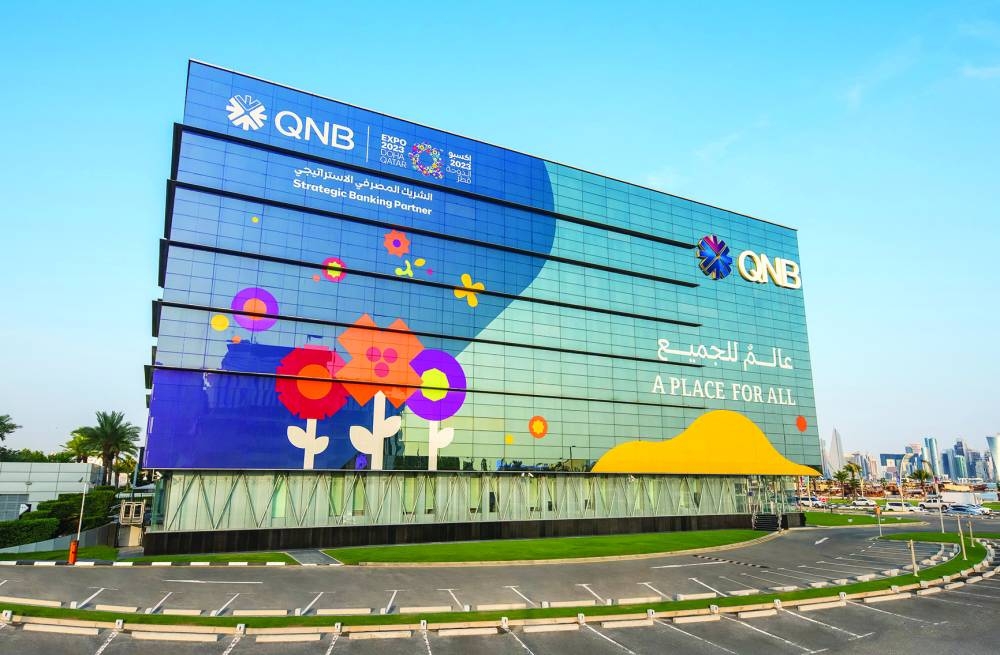Qatar National Bank (QNB) said it expects crude oil prices to stabilize near their current levels over the next few quarters, given the continued strong global demand for oil.
The bank said in its weekly report that despite the tightening market conditions due to the slowdown in supply growth, prices will remain within a range close to $80 per barrel unless there are any geopolitical surprises. The bank pointed out that the COVID-19 pandemic marked the beginning of a period of significant volatility in commodity markets in early 2020. Particularly for crude oil, major global events led to substantial market shocks, resulting in sharp fluctuations in prices within relatively short periods.
The report added: "Initially, the Covid-pandemic represented a major negative shock to demand, given large-scale global lockdowns. This led to a
temporary collapse in market conditions, as inventories were above full capacity whilst demand was at multi-decade lows. The price of Brent crude,
the most relevant benchmark for global oil markets, bottomed at $19 per barrel mark in April 2020.
The report clarified that thereafter, crude oil prices witnessed a significant turnaround after reaching their lowest levels in April 2020, supported by the global recovery from the pandemic, which happened faster than expected. This was also aided by effective production management by OPEC+ member countries. Additionally, the war in Ukraine provided an extra boost, resulting in an additional increase in the price of Brent crude to $128 per barrel in March 2022.
The report mentioned that after crude oil prices reached their peak, they underwent a significant correction, due to a demand slowdown resulting from the performance of advanced economies, and the relatively weak recovery of the Chinese economy following the implementation of complete COVID containment policies.
On the supply side, OPEC+ increased production to meet the expected excess demand, while major economies (the United States, Europe, and China) managed emergency releases of strategic reserves. As a result, there was a correction in prices in 2023, averaging $82 per barrel, and the most important thing was the occurrence of a balance between supply and demand, leading to price stability around the annual average, which ranged between a minimum of $71 and a maximum of $94 per barrel.
According to the bank's report, this difference is more moderate compared to the large fluctuations that occurred in 2022, when prices ranged between a minimum of $75 per barrel and a peak of $128 per barrel. It is expected that Brent crude prices will remain supported at their current levels of $80 per barrel.
The bank attributed its expectations to two main factors: Firstly, on the demand side, the macroeconomic outlook for China, the rest of Emerging Asia (including India), and the United States remains strong, which will boost global oil consumption. In China, although the recovery from the pandemic was not as significant as initially expected, growth remains strong, with the IMF raising its growth forecast for China in 2024 to 4.6%, reflecting new financial support from the Chinese government, continued expansion in the petrochemical industry, and increased demand for jet fuel due to the expansion of air transport, which will provide further support to the economy. It is also expected that India's economic growth will reach 6.5% and 4.7% for the economies of the Association of Southeast Asian Nations (Indonesia, Malaysia, the Philippines, Singapore, and Thailand), which will be key contributors to demand this year.
The United States accounts for approximately 20% of global oil demand and is therefore one of the main drivers of oil markets that need to be monitored. Recent data releases showed that real GDP continued to expand at a healthy pace in the United States, exceeding consensus expectations by a significant margin in the last two quarters of 2023. Consumption remains strong in this largest market in the world due to strong labor demand and sound household balances. The likelihood of a recession, although not entirely ruled out, has significantly decreased, and the most likely scenario now points to a "soft landing." Taken together, these factors are expected to support oil demand.
The second factor is on the supply side, where it is expected that the unexpected increase in available volumes in the market during 2023 will decrease. The use of strategic reserves, as well as the record withdrawal of commercial stocks, led to the lowest overall oil inventories in several decades, which is a concern for energy security. This requires official net purchases for inventory replenishment, resulting in increased demand. Additionally, OPEC+ countries have decided to implement production cuts to maintain prices at higher levels. Finally, investments were made during the energy crisis in 2022-2023, indicating limited room for additional investments and supply growth in 2024. Therefore, supply volumes are unlikely to surprise on the upside.
To put the current conditions into perspective, it is worth noting that oil prices are not particularly expensive relative to historical levels. The overall cost of oil demand is approximately 2.8% of expected global nominal GDP for 2024, significantly below the historically critical threshold of 5% of GDP, where the "oil price burden" begins to impact consumption and investment significantly. If the cost of global oil consumption were 5% of world GDP, the average price of Brent crude would be $145 per barrel. This means that the global economy could absorb Brent prices at much higher levels before global demand is seriously affected. Furthermore, Brent prices are up 24% from pre-pandemic levels, which is lower than the performance of other major commodities such as gold and copper, which have increased by 33% and 38% respectively.
In conclusion, crude oil prices are expected to stabilize near current levels as physical markets tighten due to slowing supply growth and resilient global demand. Therefore, we expect oil prices to fluctuate within a range close to $80 per barrel over the next few quarters, barring any significant geopolitical surprises. (QNA)

